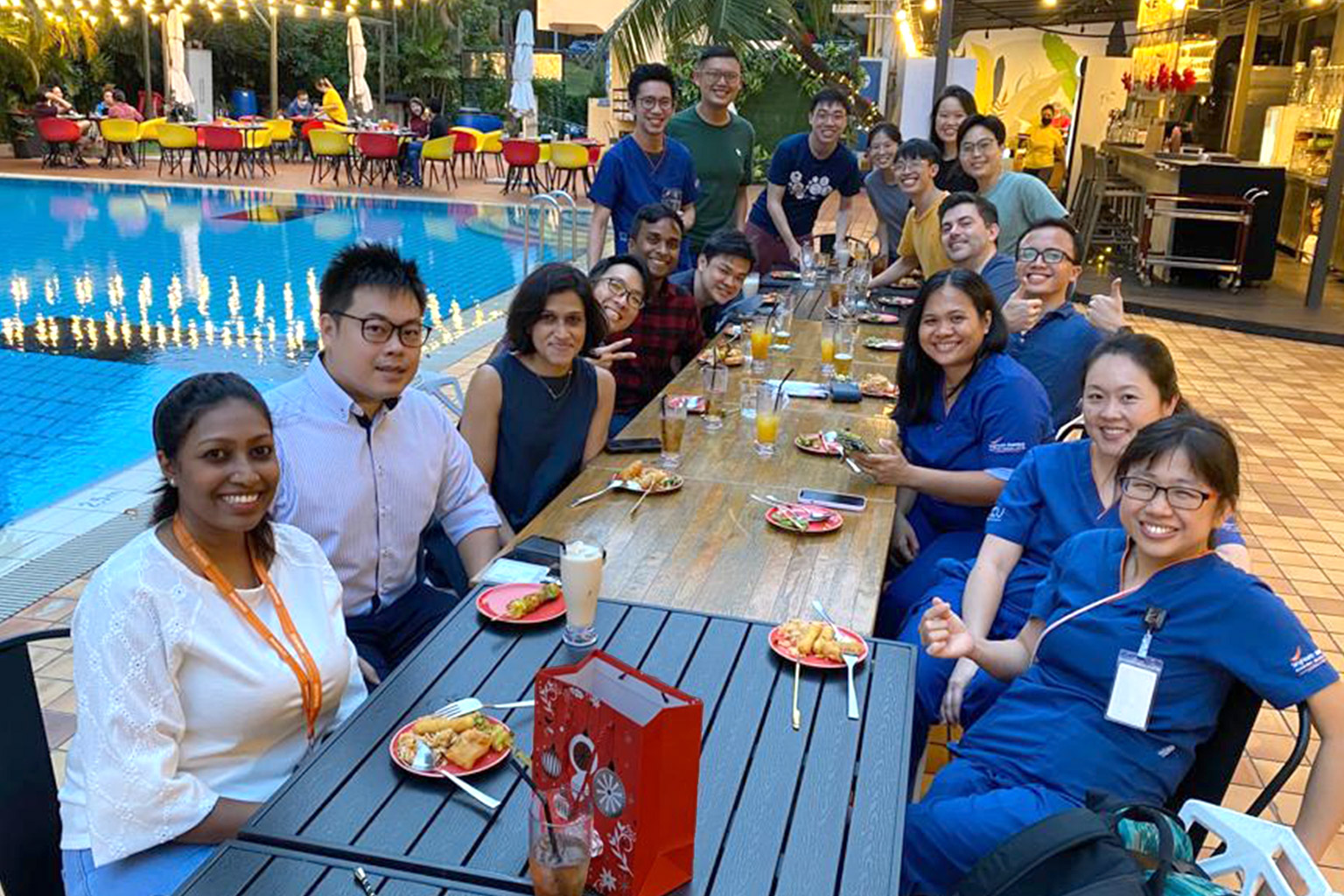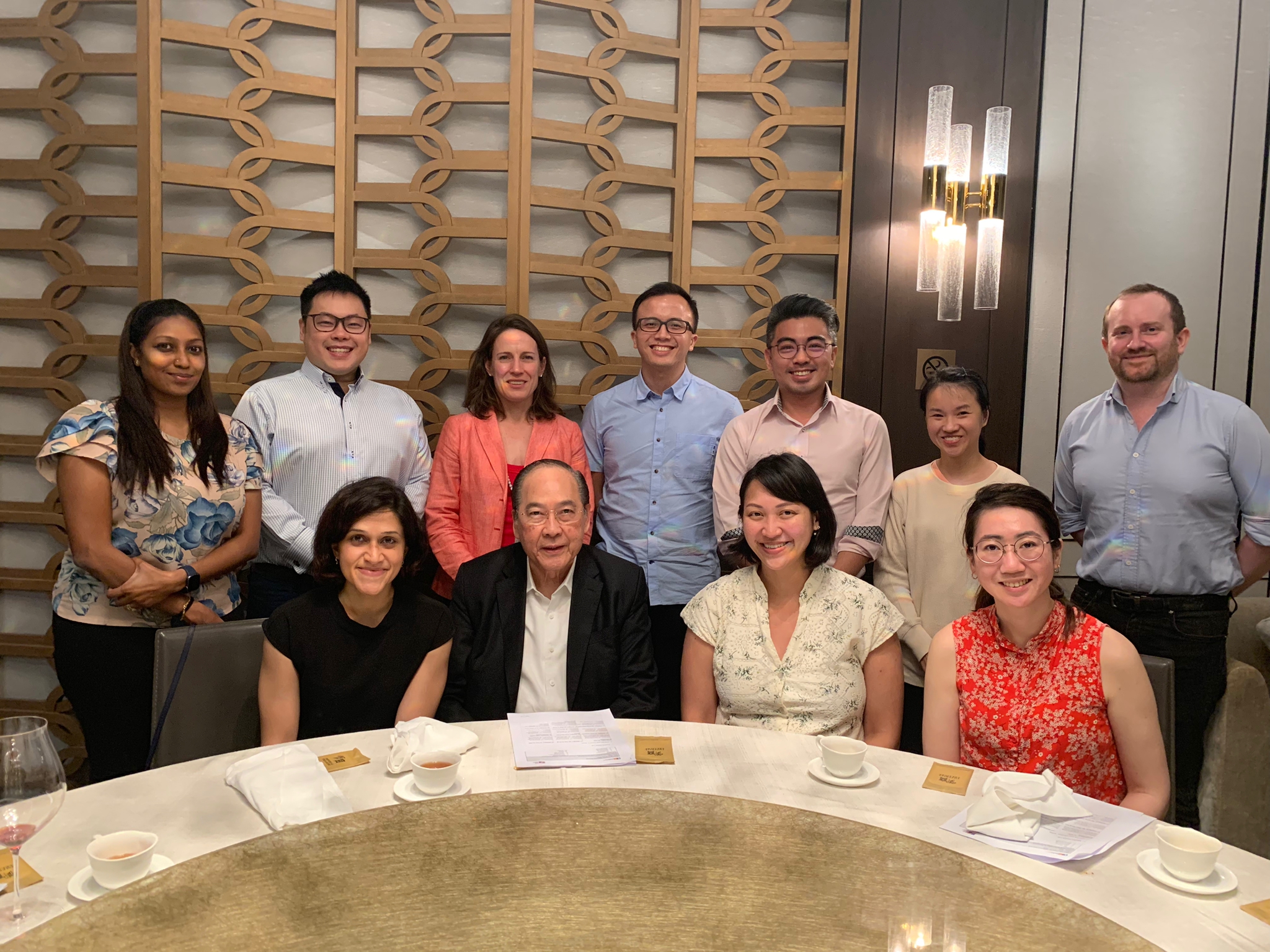BRANDED CONTENT
Tutoring students and expanding their professional network: How medical school graduates mentor Singapore’s future doctors
Duke-NUS Medical School alumni are also paying it forward by supporting their juniors in clinical rotations and providing feedback towards curriculum enhancements

Graduates of Duke-NUS Medical School regularly come together to plan tutoring sessions and networking events for current students. PHOTO: DUKE-NUS MEDICAL ALUMNI
Medicine is one of the most challenging courses of study and having an engaged mentor is a big help for any doctor-in-training. This is why Duke-NUS Medical School values its mentoring culture, with many of its graduates lending their time and knowledge to current students.
“It’s important to have a strong sense of community with those who have walked the same path before,” says Dr Mara McAdams, Associate Dean of Alumni Relations at Duke-NUS. “We're a new and small school, and we’re doing medicine differently.”
Alumni are heavily involved in what Dr McAdams calls direct teaching — alumni who come back to mentor students by holding tutoring sessions on the weekends or after school, as well as workshops to give students more specialised training in areas like suturing.
The Office of Alumni Relations also works with lecturers to identify students who could benefit from more support in certain areas, and assigns them alumni to act as academic mentors. Students are also welcome to request alumni support, Dr McAdams adds.
Passing on the torch
Clinical rotations for Duke-NUS students start in their second year in the SingHealth group, the school's academic medicine partner. With most Duke-NUS graduates doing their postgraduate training in hospitals under SingHealth, current students can expect to receive support from their seniors during their clinical rotations.
“Every student goes into their posting with clearly outlined learning objectives such as performing certain procedures like blood drawing, or attending to specific patient cases,” says Duke-NUS alumna Dr Anu Pandey, associate consultant at KK Women’s and Children’s Hospital’s Children’s Emergency department.
“It’s common for seniors on the same ward team, or even just passing by in the corridors, to go out of their way to offer their help to juniors whenever they could. We do this so that when they start clinical work as a doctor, they’ve had as much practice as they can, in as many areas as possible,” she adds.
A large part of the alumni initiatives in Duke-NUS can be jointly credited to the Office of Alumni Relations and the Duke-NUS Medical Alumni (DNMA), the school’s alumni association. The DNMA organises networking events for students and alumni to help expand and maintain professional connections, put together talks featuring prominent figures in the community, and provide feedback to the school to keep the Duke-NUS curriculum up to date with the changing healthcare landscape.

Dr McAdams says the alumni are the school’s best feedback mechanism. For instance, alumni input was crucial in shifting the timing of the students' clinical rotations. Initially, they were scheduled after the final year exit examinations. Alumni suggested for the school to move the clinical rotations earlier, so students could have more time to focus on procedural skills, acute inpatient care and other skills that junior doctors need for their first day of work.
Many alumni also make the effort to remain involved in the development of the school and the student body.
“We’ve all benefited from the support and mentorship of seniors and faculty during our time at Duke-NUS,” explains Dr Anu. “It really is our way of giving back to the school — ensuring that students do well, and keeping the Duke-NUS flag flying high.”
Becoming a ‘Clinician First’
In contrast to the traditional undergraduate Bachelor of Medicine, Bachelor of Surgery degree, Duke-NUS offers a graduate entry, four-year Doctor of Medicine (MD) programme, of which nine months are dedicated almost exclusively to research and scholarship.
This unique programme is driven by the Clinician First, Clinician Plus philosophy whereby students come into Duke-NUS to first be trained as competent clinicians, but above that, are encouraged to harness their existing skills and competencies to value-add to their clinical training, pursuing the path of clinician leaders.

PHOTO: DUKE-NUS MEDICAL SCHOOL
“Duke-NUS is special because it encourages you to use your past experiences to your advantage,” says Dr Kenneth Chin, who did stem cell research at the Agency of Science Technology and Research (A*STAR) prior to enrolling in Duke-NUS. Today, he is a senior resident in Diagnostic Radiology with SingHealth and the vice-president of DNMA.
“The school always encourages you to contribute more, to recognise that being a doctor is more than simply ‘treating patients and healing diseases’,” he adds. “We have to capitalise on our other skills to stay relevant, and act as force multipliers in the ever-evolving medical landscape.”
For example, someone who studied finance before entering medical school can better contribute to healthcare financing. Those who have experience in engineering can leverage their knowledge to excel in medical technology and medical device design as clinician-innovators.
“As junior doctors, the significance of these skills may not be apparent. But when opportunities arise, such skills will give our graduates an edge,” he says.
Aside from his administrative duties in the DNMA, Dr Chin is also actively involved in pastoral care for Duke-NUS students. He believes that this is important as he had greatly benefited from the mentorship and pastoral care from his seniors.
“We want to ensure that the next generation will flourish in the healthcare ecosystem,” Dr Chin says. “That’s what drives me and many of my colleagues to mentor students.”
Learn more about the Duke-NUS Medical School community, culture and opportunities in its Open House on April 15, 2023.
Sign up for the Duke-NUS Medical School Open House 2023 here.



